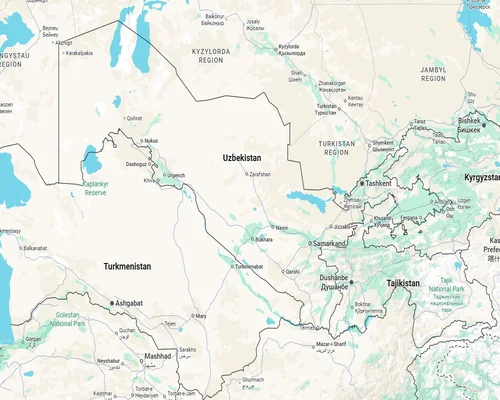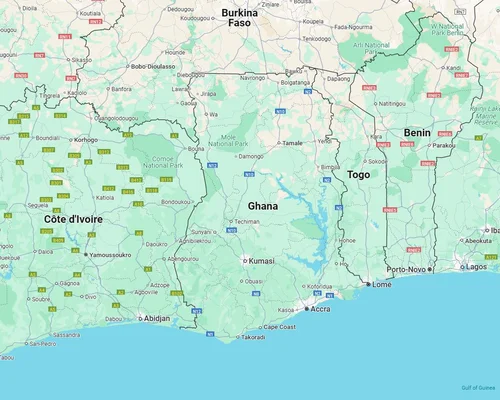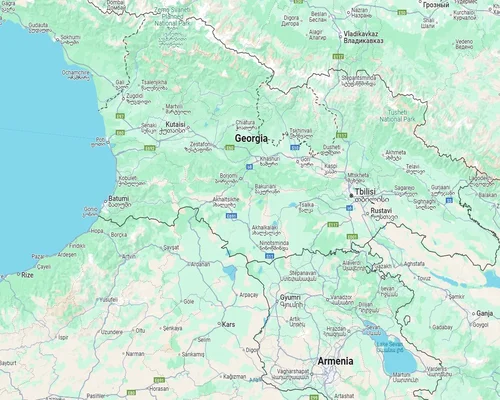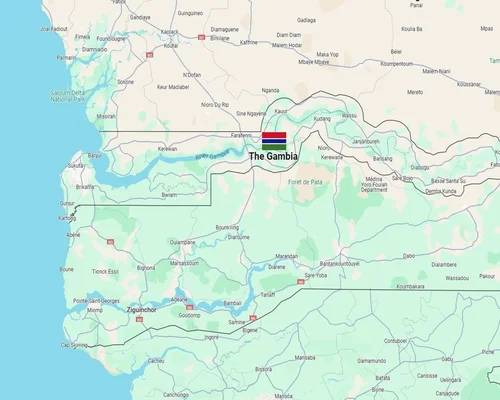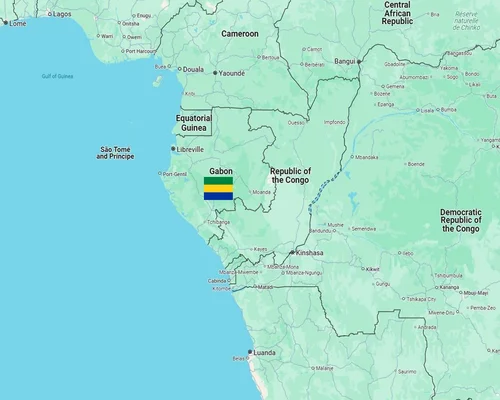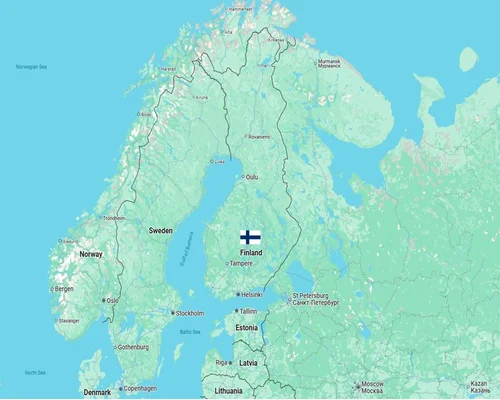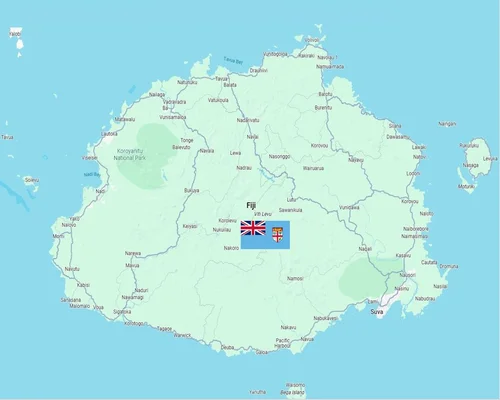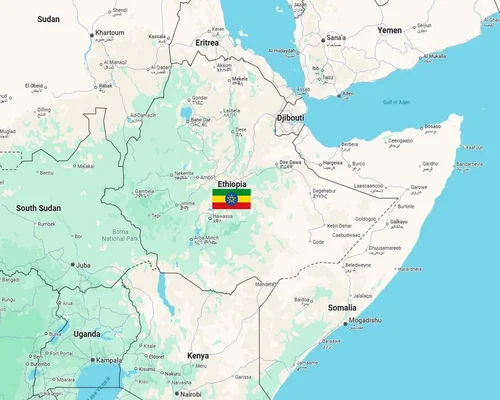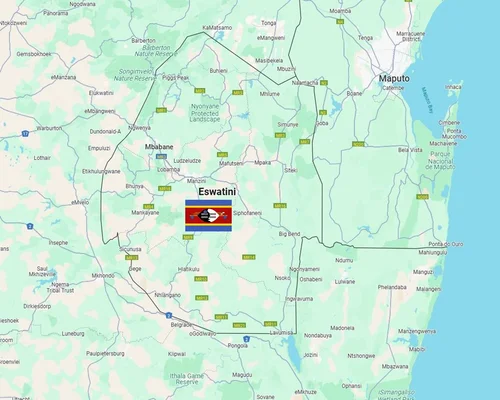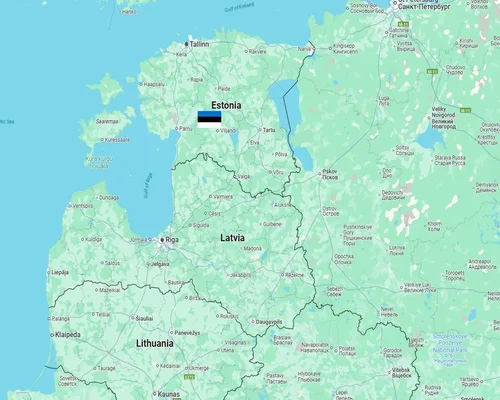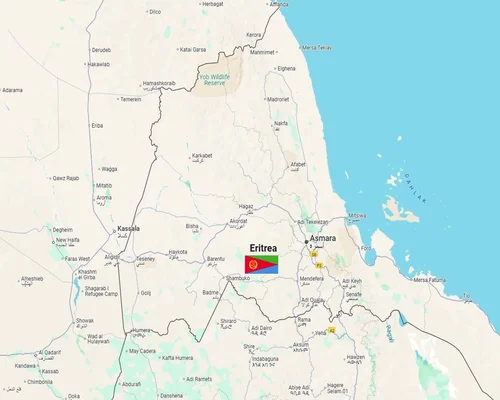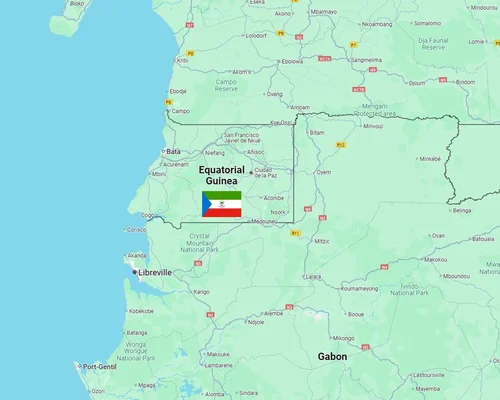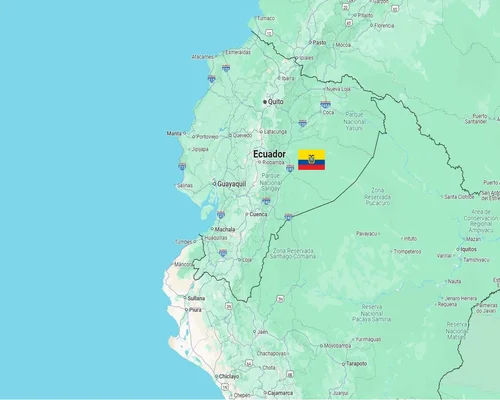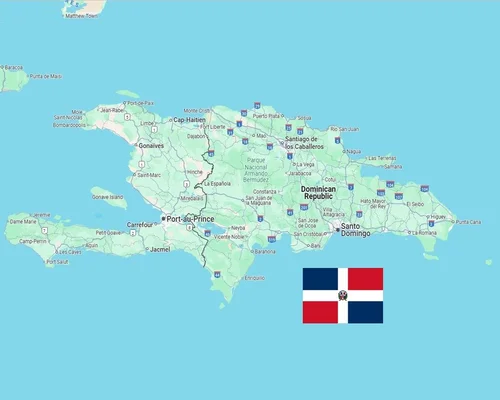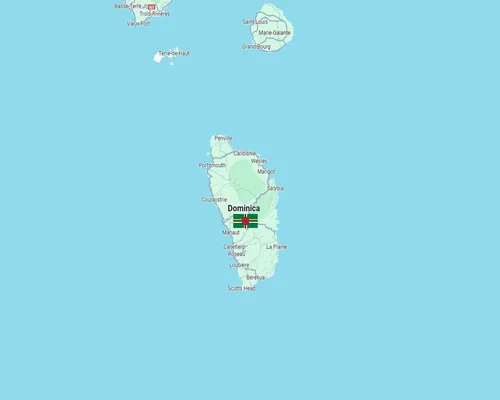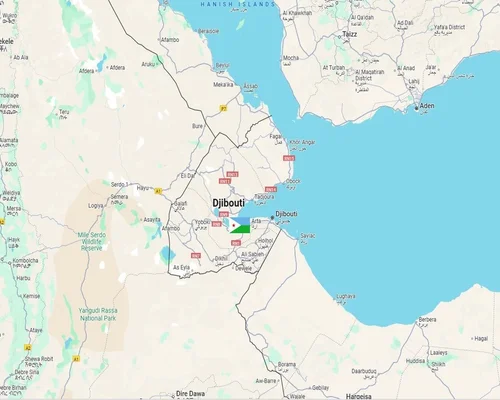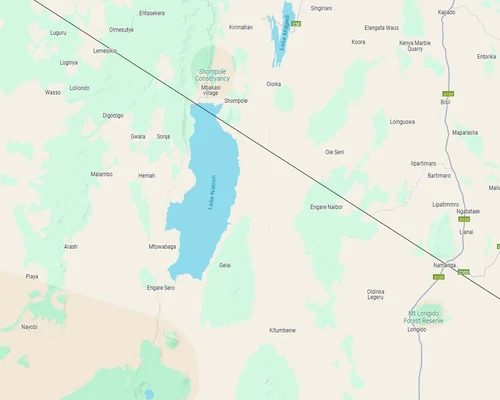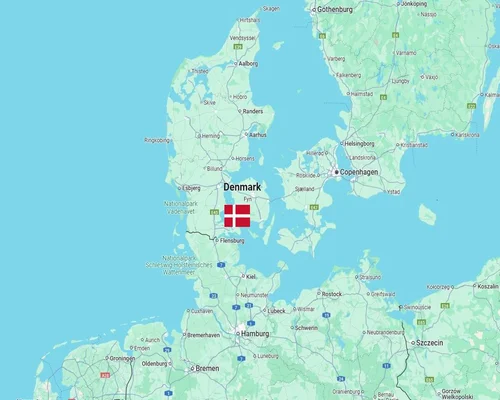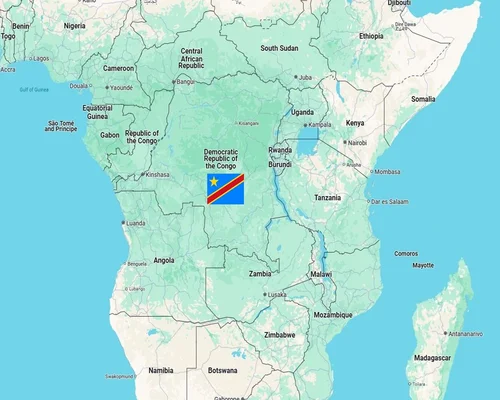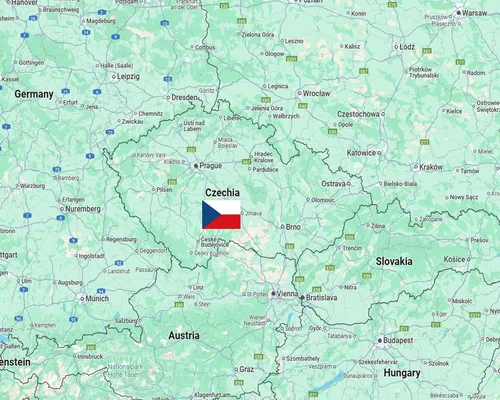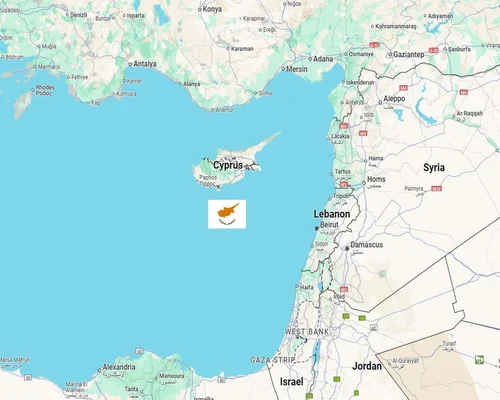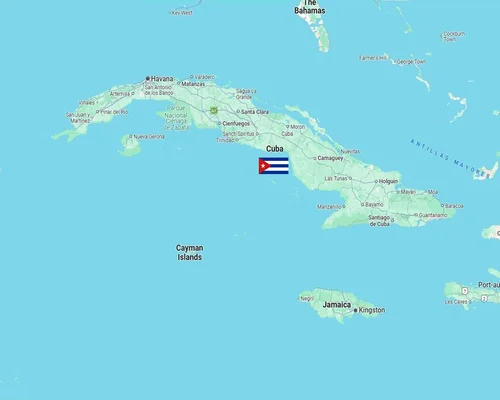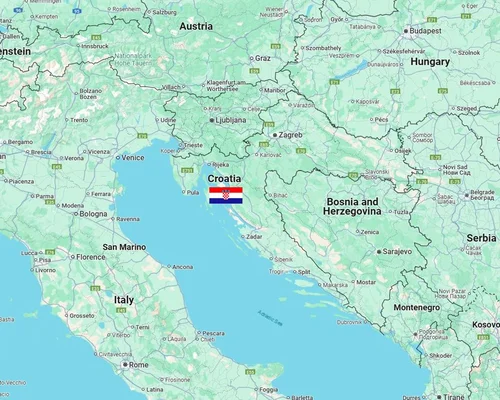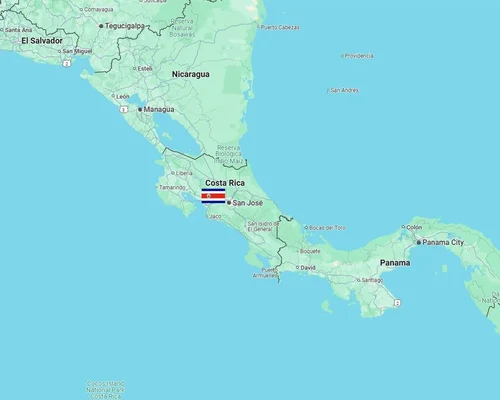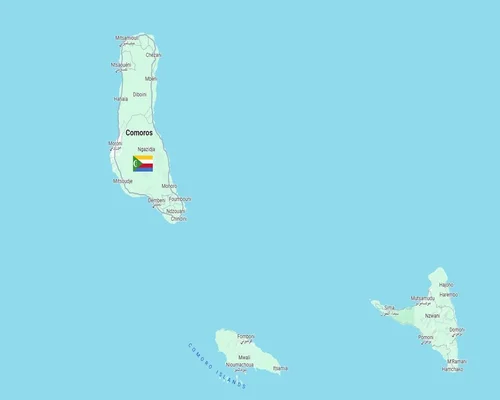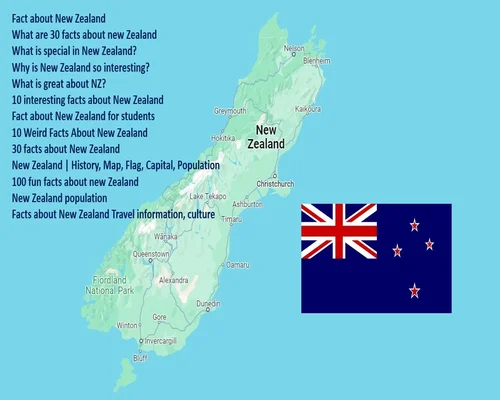
New Zealand Fact About | History, Map, Flag, Capital, Population, Travel information & culture
Fact about new zealand
What are 30 facts about new zealand
What is special in New Zealand?
Why is New Zealand so interesting?
What is great about NZ?
10 interesting facts about new zealand
Fact about new zealand for students
10 Weird Facts About New Zealand
30 facts about new zealand
New Zealand | History, Map, Flag, Capital, Population
100 fun facts about new zealand
new zealand population
Facts about New Zealand Travel information, culture
30 Key Facts About New Zealand
Here are 30 interesting facts about New Zealand:
- Geography: New Zealand is located in the southwest Pacific Ocean, consisting of two main islands, the North Island and the South Island, and numerous smaller islands.
- Maori Culture: The indigenous Maori settled in New Zealand over 1,000 years ago and have a rich cultural heritage.
- Languages: English and Maori are the official languages of New Zealand.
- Hobbiton: The famous movie set for Hobbiton, featured in "The Lord of the Rings" and "The Hobbit" film series, is located near Matamata, New Zealand.
- Kiwi Bird: New Zealand is home to the Kiwi bird, a flightless bird and a national symbol. It is nocturnal and endangered.
- Bungee Jumping: Commercial bungee jumping originated in New Zealand. The first commercial jump took place in Queenstown in 1988.
- Sheep: Although sheep numbers have declined, historically, New Zealand was known for having more sheep than people.
- No snakes: New Zealand is one of the few countries in the world that does not have native snakes.
- Southern Alps: The Southern Alps run along the western side of the South Island, with Aoraki Mount Cook being New Zealand highest peak.
- Whale watching: Kaikoura, located on the east coast of the South Island, is famous for whale watching because of its rich marine life.
- Rotorua: Rotorua is known for its geothermal activity, including geysers, hot springs and mud pools.
- Adventure Sports: New Zealand is a popular destination for adventure sports such as skydiving, skiing, white-water rafting and hiking.
- National Parks: The country has several national parks including Fiordland, Tongariro, Abel Tasman and Mount Aspiring.
- Clean and Green: New Zealand is known for its pristine natural environment and commitment to conservation.
- Nuclear-free zone: New Zealand has been nuclear-free since the mid-1980s, with legislation prohibiting nuclear-powered or nuclear-armed ships.
- Rugby: Rugby is the national sport of New Zealand, where the national team, the All Blacks, is one of the most successful in the world.
- Wellington: Wellington, the capital city, is known for its vibrant arts scene and is often referred to as "the quietest capital in the world".
- Long White Clouds: The Maori name for New Zealand is Aotearoa, meaning "Land of the Long White Clouds."
- Lord of the Rings Tourism: The popularity of "The Lord of the Rings" films has led to a significant increase in tourism, with fans visiting filming locations across the country.
- Pavlova: Pavlova, a meringue-based dessert topped with fruit and cream, is believed to have originated in New Zealand.
- Kiwifruit: Kiwifruit, originally known as Chinese gooseberry, was first grown commercially in New Zealand.
- Universal Suffrage: New Zealand was the first country in the world to give women the right to vote in 1893.
- Treaty of Waitangi: Signed in 1840 between the British Crown and Maori chiefs, the Treaty of Waitangi is considered the founding document of New Zealand.
- Middle Earth: New Zealand stunning landscape is nicknamed "Middle Earth" because of its resemblance to the fictional world created by JRR. Tolkien.
- Glowworm Caves: The North Island Waitomo Caves are famous for their glowworms, which create a magical underground experience.
- Wine Industry: New Zealand is famous for its wines, especially Sauvignon Blanc from regions such as Marlborough.
- Volcanoes: New Zealand has several active and dormant volcanoes, of which White Island is one of the most active.
- National Symbols: The Silver Fern and Southern Cross are commonly used symbols representing New Zealand.
- Maori Haka: The Maori Haka, a traditional war dance, is performed by the All Blacks before rugby matches and has become an iconic symbol of New Zealand.
- Time Zone: New Zealand is one of the first countries to see sunrise every day and is therefore sometimes referred to as the "Land of the Long White Clouds".
What is special about New Zealand?
New Zealand is special for a number of reasons, offering a unique blend of natural beauty, cultural diversity, adventure opportunities and progressive values. Here are some aspects that make New Zealand different:
Stunning Landscape: New Zealand has breathtaking scenery, including majestic mountains, pristine beaches, lush forests and dramatic fjords. The diverse landscape offers endless opportunities for outdoor adventure and exploration.
Maori Culture: Indigenous Maori culture is an integral part of New Zealand identity, with its rich heritage, art, language and heritage adding depth to the country cultural tapestry.
Biodiversity: Despite its relatively small size, New Zealand has a remarkable array of flora and fauna, much of which is unique to the country. Biodiversity is abundant and distinctive, from the iconic kiwi bird to the ancient kauri tree.
Adventure Sports: New Zealand is often considered the adventure capital of the world, offering a wide range of thrilling activities such as bungee jumping, skydiving, white-water rafting, skiing and hiking. The diverse terrain provides the perfect playground for adrenaline junkies.
Environmental Conservation: New Zealand prides itself on its commitment to environmental conservation and sustainability. The country pristine natural environment is protected through national parks, reserves and initiatives aimed at conserving biodiversity and reducing carbon emissions.
Friendliness and Hospitality: Kiwis, as New Zealanders are affectionately known, are renowned for their friendliness, hospitality and laid-back attitude. Visitors often comment on the warm welcome they receive and the genuine kindness of the locals.
Food and Wine: New Zealand culinary scene is celebrated for its fresh, high-quality ingredients and innovative cuisine. From seafood to artisan cheeses and world-class wines, the country offers a delicious gastronomic experience.
Safety and stability: New Zealand consistently ranks high in global surveys for safety, stability and quality of life. Its peaceful society, low crime rate, and efficient public services make it an attractive destination for residents and visitors alike.
Film Tourism: Thanks to its stunning landscape and the success of film franchises such as "The Lord of the Rings" and "The Hobbit", New Zealand has become a popular destination for film tourism. Fans flock to iconic filming locations to immerse themselves in Middle-earth.
Cultural diversity: In addition to Maori culture, New Zealand embraces cultural diversity, with immigrants from around the world contributing to its vibrant multicultural society. This diversity is reflected in art, cuisine, festivals and everyday life.
These are just a few aspects that make New Zealand special, but there are countless other reasons why people are drawn to this fascinating country at the edge of the world.
Why is New Zealand so attractive?
New Zealand is considered attractive for many reasons, attracting visitors from all over the world and intrigue. Here why:
Breathtaking Landscapes: From snow-capped mountains to lush forests, golden beaches to volcanic plateaus, New Zealand offers a diverse range of stunning landscapes spread over a relatively small area.
Unique wildlife: New Zealand isolation has led to the evolution of many unique plant and animal species, including the iconic kiwi bird, the flying kakapo parrot and the tuatara lizard.
Adventure Capital: With activities like bungee jumping, skydiving, white-water rafting and skiing, New Zealand has earned a reputation as the adventure capital of the world, attracting thrill-seekers from all over the world.
Cultural heritage: The rich Maori culture, combined with the influence of European settlers and immigrants from Asia and the Pacific, creates a vibrant and diverse cultural tapestry.
Film Tourism: The stunning landscapes featured in blockbuster films such as "The Lord of the Rings" and "The Hobbit" have made New Zealand a favorite destination for film buffs and fans of fantasy literature.
Outdoor Activities: Whether hiking the famous Milford Track, exploring the Glowworm Caves or sailing the Bay of Islands, New Zealand offers plenty of outdoor activities for nature lovers and adventure enthusiasts.
Environmental conservation: New Zealand commitment to environmental conservation and sustainability is evident in its pristine nature parks, protected marine reserves and efforts to combat climate change.
Wine and cuisine: The country fertile soil and temperate climate make it ideal for producing world-class wines, while its culinary scene is renowned for its fresh seafood, grass-fed meats and innovative fusion cuisine.
Friendly locals: Kiwis are known for their laid-back attitude, warmth and hospitality, which makes visitors feel at home and welcome.
Progressive values: New Zealand is often praised for its progressive policies, including universal health care, free education, and a strong social welfare system, which contribute to its high standard of living.
These factors, among others, contribute to New Zealand charm and make it an endlessly attractive destination for travelers and adventurers.
Whats great about NZ?
New Zealand, often called Aotearoa in Maori, offers numerous qualities that make it a great place to live, visit or explore. Here are some of the things that make New Zealand great:
Stunning natural beauty: New Zealand is famous for its breathtaking scenery, which includes majestic mountains, pristine beaches, lush forests and picturesque fjords. The country diverse geography offers endless opportunities for outdoor adventure and natural exploration.
Outdoor recreation: With a wide range of outdoor activities including hiking, skiing, surfing, kayaking and bungee jumping, New Zealand is an outdoor enthusiast paradise. There is something for everyone from adrenaline junkies to nature lovers.
Clean Environment: New Zealand commitment to environmental conservation and sustainability has helped maintain its clean air, water and natural habitats. The country pristine environment is a source of pride for its residents and a drawcard for visitors.
High quality of life: New Zealand consistently ranks high on global quality of life indices, thanks to its excellent healthcare system, high education standards, low crime rate, and overall sense of safety and security.
Cultural Diversity: New Zealand population is diverse and multicultural, with a mix of Maori, European, Asian and Pacific Island influences. This cultural melting pot contributes to a rich tapestry of traditions, languages, cuisines and festivals.
Strong sense of community: Kiwis are known for being friendly and welcoming, as well as their strong sense of community. Whether in a rural town or a bustling city, New Zealanders often come together to support each other and celebrate shared values.
Progressive values: New Zealand is known for its progressive policies, including equal rights, environmental sustainability and social welfare programs. The country commitment to fairness and inclusion contributes to its reputation as a forward-thinking nation.
Safe and peaceful: With low crime rates and a stable political environment, New Zealand is considered one of the safest and most peaceful countries in the world. This sense of security makes it an attractive destination for residents and visitors alike.
Innovative Spirit: Despite its small size, New Zealand punches above its weight in terms of innovation and creativity. The country has produced breakthrough innovations, technologies and cultural exports that have had a global impact.
Sense of adventure: Whether it is exploring rugged landscapes, trying extreme sports, or taking a road trip through scenic routes, New Zealand fosters a spirit of adventure and discovery that fascinates both locals and visitors.
These are just a few of the many reasons why New Zealand is considered a great place to live, work, play and explore. The unique blend of natural beauty, cultural diversity and progressive values sets it apart as a truly special destination.
10 interesting facts about New Zealand
Here are 10 interesting facts about New Zealand:
Middle-earth: New Zealand stunning landscapes served as the filming backdrop for "The Lord of the Rings" and "The Hobbit" film trilogies, earning it the nickname "Middle-earth" due to its resemblance to the fictional worlds created by it. J.R.R. Tolkien.
First to see the sun: Due to its location near the International Date Line, New Zealand is one of the first places in the world to see the sunrise every day, especially in places like Gisborne and the Chatham Islands.
No Native Land Snakes: New Zealand is one of the few countries in the world with no native land snakes. Its isolation from other lands prevents the introduction of snakes, creating a unique ecosystem free of these reptiles.
Pavlova Origin: Pavlova, a popular meringue-based dessert topped with fruit and cream, is widely believed to have originated in New Zealand. Its creation is often attributed to a chef in New Zealand or Australia, but it remains a favorite Kiwi dessert.
Steepest street in the world: Baldwin Street in Dunedin holds the Guinness World Record for the steepest residential street in the world. It attracts tourists who try to climb its steep gradient.
Kiwi Bird: The kiwi bird is the national symbol of New Zealand and is unique to the country. It is a flightless bird, nocturnal and has a long beak with a nostril at the end, which is unusual among birds.
Maori Language: Te Reo Maori, the language of the indigenous Maori people, is an official language of New Zealand alongside English. Efforts to revive and preserve the Maori language have increased its use and recognition.
Sheep Population: Although New Zealand was historically known for having more sheep than people, the sheep population has declined significantly in recent decades. Nevertheless, sheep farming is an important part of the country agricultural industry.
Whale watching: Kaikoura on the east coast of the South Island is famous for its whale watching opportunities. The deep underwater canyon near Kaikoura attracts a variety of marine life including sperm whales, humpback whales and orcas.
Geothermal Activity: Located in the North Island, Rotorua is known for its geothermal activity, including geysers, hot springs and mud pools. Visitors can experience the unique sights and smells of this geothermal wonderland.
These facts provide a glimpse into the diverse and fascinating aspects of New Zealand culture, geography and natural wonders.
Information about New Zealand for students
Here are 10 interesting facts about New Zealand that students may find interesting:
Geography: New Zealand consists of two main islands, the North Island and the South Island, and numerous smaller islands. It is located in the southwest Pacific Ocean.
Maori Culture: The indigenous Maori settled in New Zealand more than 1,000 years ago and have a rich cultural heritage, including traditional dances such as the haka.
No snakes: New Zealand is one of the few countries in the world that has no native snakes, making it unique in terms of wildlife.
Kiwi Bird: The kiwi bird is the national symbol of New Zealand. It is a flightless bird, nocturnal and endangered, known for its distinctive appearance and behavior.
Adventure Sports: New Zealand is often called the "Adventure Capital of the World" because of its wide range of adventure sports, including bungee jumping, skydiving, skiing and white-water rafting.
Mountains and Volcanoes: The country is home to the Southern Alps, which run along the western side of the South Island, as well as numerous volcanoes, both active and dormant.
Lord of the Rings Filming Locations: Many scenes from "The Lord of the Rings" and "The Hobbit" film series were shot in New Zealand, making it a popular destination for movie fans.
Wine Industry: New Zealand is known for its wine production, particularly Sauvignon Blanc from regions such as Marlborough. The country wine industry has garnered international acclaim.
Sheep Population: Although sheep numbers have declined in recent years, historically, New Zealand was known for having more sheep than people. Sheep rearing is an important part of the country economy.
Treaty of Waitangi: Signed in 1840 between the British Crown and Maori chiefs, the Treaty of Waitangi is considered the founding document of New Zealand. It established a partnership between the Maori people and the British government.
10 Weird Facts About New Zealand
Here are 10 weird and interesting facts about New Zealand:
Glowworms in caves: New Zealand is home to unique glowworm caves, such as Waitomo Caves, where thousands of glowworms illuminate the darkness, creating a surreal and magical underground experience.
Steepest street in the world: Baldwin Street in Dunedin holds the Guinness World Record for the steepest residential street in the world. It is so steep that the houses on the street are sinking to the ground.
Unusual bird species: In addition to the iconic kiwi bird, New Zealand has other unusual bird species, including the kakapo, a large, flightless parrot known for its friendly behavior and distinctive mating ritual.
Sheep with snow overcoats: In remote areas of New Zealand, such as the high country of the South Island, sheep are sometimes fitted with "snow overcoats" to protect them from extreme cold and snow during the winter months.
Wombat crossing signs: In some rural areas of New Zealand, particularly areas with high Australian expatriate populations, you may see road signs warning drivers to cross the road, even though wombats are not native to New Zealand.
Skiing at active volcanoes: New Zealand offers skiing and snowboarding opportunities at active volcanoes, such as Mount Rupehu in the North Island, where ski fields operate on the volcano slopes.
Pavlova Controversy: New Zealand and Australia have long debated the origins of pavlova, a meringue-based dessert topped with fruit and cream. Both countries claim to have invented it, leading to a friendly culinary rivalry.
Beehive-shaped Parliament House: The Beehive, located in Wellington, is the independent executive branch of the New Zealand Parliament House. Its unique shape and design has made it an iconic symbol of the New Zealand government.
World most remote McDonald: The town of Turangi, near Lake Taupo in the North Island, was once considered the world most remote McDonald restaurant due to its relatively isolated location.
Chocolate Fish Tradition: In New Zealand, it is a tradition to reward someone for their efforts or achievements with a "chocolate fish" which is a candy shaped like a fish and coated in chocolate. It is a fun and quirky way to show appreciation.
30 facts about New Zealand
Here are 30 interesting facts about New Zealand:
- New Zealand is located in the southwest Pacific Ocean, consisting of two main islands, the North Island and the South Island, and numerous smaller islands.
- The indigenous Maori settled in New Zealand more than 1,000 years ago and have a rich cultural heritage.
- English and Maori are the official languages of New Zealand.
- New Zealand was one of the last major landmasses to be settled by humans. It was first inhabited by Polynesians, who arrived in canoe voyages in several waves between 1250 and 1300 AD.
- The first European explorer to reach New Zealand was Dutch navigator Abel Tasman in 1642.
- New Zealand was named "Aotearoa" by the Maori, meaning "Land of the Tall White Clouds".
- The country national symbol is the kiwi bird, a flightless bird native to New Zealand.
- New Zealand has a variety of ecosystems including forests, mountains, beaches and fjords.
- The Southern Alps, running along the western side of the South Island, include New Zealand highest peak, Aoraki Mount Cook.
- New Zealand is part of the Pacific Ring of Fire and has numerous active and dormant volcanoes.
- The country is known for its geothermal activity, including geysers, hot springs and mud pools. Rotorua is a popular destination to experience these natural phenomena.
- New Zealand is a biodiversity hotspot, with many plant and animal species found nowhere else in the world.
- The national rugby team, the All Blacks, is one of the most successful rugby teams in the world and is an iconic symbol of New Zealand.
- New Zealand is famous for its adventure sports, such as bungee jumping, skydiving, white-water rafting and skiing.
- The Lord of the Rings and The Hobbit film trilogies were shot in New Zealand, showcasing the country stunning landscapes.
- Wellington is New Zealand capital city and is known for its vibrant arts scene.
- New Zealand was the first country in the world to give women the right to vote in 1893.
- The Treaty of Waitangi, signed between the British Crown and Maori chiefs in 1840, is considered New Zealand founding document.
- The country is a constitutional monarchy with parliamentary democracy.
- New Zealand is a nuclear-free zone, where nuclear-powered or nuclear-armed ships are prohibited.
- The local Maori greeting is called "hangi", where people press their noses together.
- The All Blacks perform the Haka, a traditional Maori war dance, as a show of strength and unity before a rugby match.
- New Zealand is one of the first countries to see a sunrise every day, making it the "Land of the Long White Clouds".
- The country has a strong agricultural sector, with sheep farming historically a significant part of the economy.
- New Zealand national symbol is the silver fern, which is often used in sports and represents the country identity.
- Kea, a native parrot found in the South Island, is known for its intelligence and playful behavior.
- New Zealand wine industry has gained international acclaim, particularly for Sauvignon Blanc from regions such as Marlborough.
- The first commercial bungee jump in the Southern Hemisphere took place in Queenstown in 1988.
- New Zealand experiences a wide range of climates from subtropical in the north to temperate in the south.
- The country Department of Conservation manages a wide range of national parks, hiking trails and conservation areas to protect its natural heritage.
New Zealand History, Maps, Flags, Capitals, Population
Here an overview of New Zealand history, including information about New Zealand map, flag, capital and population:
History:
New Zealand was first settled by Polynesians, particularly the Maori people, who arrived on canoe voyages in waves between 1250 and 1300 AD.
The first European explorer to reach New Zealand was Dutch navigator Abel Tasman in 1642.
British explorer James Cook visited New Zealand in the late 18th century, leading to European exploration and eventual colonization.
The Treaty of Waitangi was signed between the British Crown and Maori chiefs in 1840, establishing British sovereignty over New Zealand, guaranteeing Maori rights and land ownership.
New Zealand became a British colony and later gained self-government in 1852 with the creation of a colonial parliament.
In 1907, New Zealand achieved Dominion status within the British Empire, marking an important step towards independence.
The country played an important role in both World Wars, contributing troops to the war alongside the Allies.
New Zealand officially became an independent state with the passage of the Westminster Adoption Act in 1947, although it maintained close ties to the British Crown.
In recent decades, New Zealand has pursued policies of social welfare, environmental conservation and multiculturalism, shaping its modern identity as a progressive and inclusive nation.
Map:
New Zealand is located in the southwest Pacific Ocean, consisting of two main islands, the North Island and the South Island, and numerous smaller islands.
The country is located in the southeast of Australia and consists of diverse landscapes including mountains, forests, beaches and fjords.
flag:
The flag of New Zealand has a blue field with the Union Jack in the canton (upper left corner) and four red stars with a white border representing the Southern Cross constellation on the right.
The stars are arranged in a distinctive pattern similar to the flag of New Zealand.
There has been discussion and debate about changing the flag to reflect a more distinctive national identity, but as of last update, no changes have been made.
Capital:
Wellington is the capital city of New Zealand.
Located on the southern tip of the North Island, Wellington is known for its vibrant arts scene, picturesque harbor and government institutions including Parliament House.
Wellington serves as the political and cultural center of New Zealand.
Population:
According to the latest available data, the population of New Zealand is about 5 million people.
The population is diverse and multicultural, with a mix of Maori, European, Asian and Pacific Islander ethnicities.
Auckland is the largest city in New Zealand, followed by Wellington and Christchurch.
This information provides an overview of New Zealand history, geography, national symbols and population.
100 fun facts about New Zealand
Here are 100 fun facts about New Zealand:
New Zealand is home to the world smallest dolphin species, the Hector dolphin.
The longest place in the world is named Taumatawhakatangihangakoauauotamateaturipukakapiki-maungahoronukupokaiwhenuakitnatahu, a mountain in Hawke Bay, New Zealand.
New Zealand has more sheep than people.
The world steepest street, Baldwin Street, is located in Dunedin, New Zealand.
New Zealand is one of the few countries in the world without native snakes.
The official bird of New Zealand is the kiwi, which is a slang term for New Zealand.
Wellington, the capital of New Zealand, is the southernmost capital city in the world.
The first person to climb Mount Everest, Sir Edmund Hillary, was a New Zealander.
New Zealand has three official languages: English, Maori and New Zealand Sign Language.
Queen Elizabeth II is featured on the New Zealand dollar.
The world first commercial bungee jump took place in Queenstown, New Zealand.
New Zealand has more golf courses per capita than any other country in the world.
The Maori name for New Zealand is Aotearoa, meaning "Land of the Long White Clouds".
New Zealand Waitomo Caves are home to thousands of glowworms, creating a magical underground experience.
New Zealand has over 3,000 glaciers, including the famous Franz Josef and Fox Glaciers in the South Island.
New Zealand national sport is rugby, and the national team, the All Blacks, is one of the most successful rugby teams in the world.
Auckland city has the highest number of boats per capita in the world.
New Zealand is the only country with an endemic species of flightless parrot, the kakapo.
The world smallest penguin, the little blue penguin, is found in New Zealand.
Tirau, New Zealand has buildings shaped like a giant sheep and a giant dog.
New Zealand has more than 15,000 kilometers of coastline.
The city of Christchurch is known as the "Garden City" because of its many parks and gardens.
New Zealand is home to the world largest seabird, the wandering albatross.
The New Zealand town of Otorohanga has a sign that reads, "Kia Ora, Welcome to Kiwiana."
The New Zealand town of Bluff is known for its oysters and hosts an annual oyster festival.
The Moeraki Boulders, large round boulders located on Koekohe Beach, are a famous natural attraction in New Zealand.
New Zealand was the first country in the world to give women the right to vote in 1893.
The city of Napier is known for its Art Deco architecture, which was built after a devastating earthquake in 1931.
New Zealand fur seals, or kekeno, are found along the country coastline.
New Zealand Marlborough Sounds are a network of sunken canyons known for their stunning beauty.
New Zealand has nine "Great Walks" which are multi-day hiking trails that showcase the country natural beauty.
The city of Rotorua is known for its geothermal activity, including geysers, hot springs and mud pools.
The Maori tradition of carving is known as "whakairo" and is used to create intricate designs on wood and stone.
The New Zealand city of Hamilton is known for its gardens and is sometimes referred to as the "City of Roses".
New Zealand national anthem is called "God Defend New Zealand" and is sung in both English and Maori.
The sport of jet boating was invented in New Zealand in the 1950s by Bill Hamilton.
Located in Fiordland National Park, the Milford Track is considered one of the most beautiful hiking trails in the world.
New Zealand is home to the world oldest tree species, the Kauri tree.
The town of Te Kuti in New Zealand is known as the "Sheep Shearing Capital of the World".
The Maori tradition of tattooing is called "ta moko" and is considered a sacred art form.
Dunedin is home to New Zealand only castle, Larnach Castle.
The Maori greeting, "kia ora," is used to say hello, goodbye, or thank you.
The New Zealand town of Whakatane is known for its annual "Whale Island" swimming competition.
New Zealand is one of the few countries in the world where you can swim with wild dolphins.
The town of Matamata is home to the Hobbiton movie set, used in the filming of "The Lord of the Rings" and "The Hobbit" film trilogies.
The city of Nelson is known for its sunshine, earning it the nickname "Sunny Nelson".
The town of Hokitika is known for its annual Wildfood Festival, where you can eat unusual foods like Huhu grubs and whitebait fritters.
New Zealand highest mountain, Aoraki Mount Cook, is named after the Maori word for "cloud breaker".
The city of Tauranga is known for its beautiful beaches and is a popular destination for surfing and swimming.
New Zealand has more than 3,000 lakes, including the country largest lake, Lake Taupo.
The town of Te Puke is known as the "Kiwifruit Capital of the World" and hosts an annual Kiwifruit Festival.
The city of Invercargill is the southernmost city in New Zealand and is known for its Scottish heritage.
The town of Kaikoura is known for its marine wildlife including whales, dolphins and seals.
The national symbol of New Zealand is the silver fern, often used in sporting and military insignia.
Gisborne is the first city in the world to see sunrise every day.
The town of Taupo is located on the shores of Lake Taupo and is known for its trout fishing and hot springs.
New Zealand is home to the world oldest bird species, the tuatara, which dates back to the time of the dinosaurs.
The town of New Plymouth is known for its coastal walkway and annual Festival of Lights.
The island town of Waiheke is known for its vineyards and is a popular destination for wine tasting.
New Zealand is one of the few places in the world where you can see the Aurora Australis or Southern Lights.
The city of Napier is known for its wine and hosts an annual Art Deco weekend, where participants dress in 1920s clothing.
The city of Whangarei is known for its beautiful waterfalls and is sometimes called the "City of Waterfalls".
New Zealand national flower is the kowhai, a yellow-flowered plant that blooms in spring.
The town of Picton is known for its ferry terminal, which connects the North Island and the South Island.
The town of Palmerston North is known for its rose gardens and is sometimes referred to as the "Rose City".
New Zealand is one of the few places in the world where you can see both fur seals and sea lions in the wild.
The town of Taumarunui is known for its annual canoe race, the Whanganui River Journey.
The city of Timaru is known for its gardens and is sometimes called the "Garden City".
New Zealand is home to the world smallest penguin species, the little blue penguin, which is about 25 centimeters long.
The town of Whitianga is known for its beautiful beaches and is a popular destination for swimming and surfing.
New Zealand national fruit is the kiwifruit, which is native to China but first grown commercially in New Zealand.
The town of Hastings is known for its Art Deco architecture and hosts an annual Art Deco festival.
The city of Kawakawa is known for its public toilets, designed by Austrian artist Friedensreich Hundertwasser.
New Zealand national insect is the weta, a large insect native to the country.
The city of Whanganui is known for its suspension bridge, which is New Zealand longest road bridge.
The town of Rangiora is known for its annual Pumpkin Festival, where participants carve giant pumpkins and compete in pumpkin-related events.
New Zealand is one of the few places in the world where you can see yellow-eyed penguins in the wild.
The town of Whakatane is known for its beaches and is a popular destination for fishing and diving.
The town of Foxton is known for its windmills, which were brought from the Netherlands in the 19th century.
New Zealand is home to the world largest earthworm species, the giant earthworm, which can grow up to 3 meters long.
The town of Masterton is known for its hot air balloon festival, which is held every year in March.
The town of Opotiki is known for its beach, which is one of the safest places to swim in New Zealand.
New Zealand national sport is rugby union, and the national team, the All Blacks, has won the Rugby World Cup multiple times.
The town of Tokoroa is known for its forestry industry and hosts an annual forestry festival.
The city of Levin is known for its rose gardens and is sometimes called "Rose Town".
New Zealand national dish is hangi, a traditional Maori meal cooked in an underground oven.
The city of Rotorua is known for its geothermal activity and is sometimes referred to as the "Sulfur City".
The town of Waipukurau is known for its annual sheep shearing competition, the Golden Shears.
New Zealand is home to the world only alpine parrot species, the kea, known for its intelligence and curiosity.
The town of Whangamata is known for its beaches, which are a popular destination for surfing and sunbathing.
The town of Methven is known for its annual hot air balloon festival, which takes place in January.
New Zealand national dessert is pavlova, a meringue-based dessert topped with whipped cream and fruit.
The city of Whanganui is known for its glass bridge, which spans the Whanganui River and is a popular tourist attraction.
The town of Raglan is known for its surfing beaches and is sometimes called the "surfing capital of New Zealand".
New Zealand is home to the world only mainland breeding colony of royal albatross, found on the Otago Peninsula.
The town of Oamaru is known for its Victorian architecture and hosts an annual Victorian Heritage Festival.
The town of Te Awamutu is known for its rose gardens and is sometimes called the "Rose Capital".
The national costume of New Zealand is the korowai, a traditional Maori garment made of feathers.
The town of Invercargill is known for its breeding of tuata
program, which aims to conserve endangered species.
The town of Turangi is known for its trout fishing and hosts an annual trout fishing competition.
These fun facts showcase New Zealand unique culture, geography and attractions, making it a fascinating destination to explore.
Population of New Zealand
According to the latest available data, New Zealand has an estimated population of about 5 million people. It is worth noting that population figures may vary slightly depending on the source and time of measurement. New Zealand has experienced steady population growth over the years, driven by factors such as natural increase (births minus deaths), immigration and internal migration.
New Zealand travel information, information about culture
Here are some facts about traveling to New Zealand and its rich culture:
Travel Information:
Visa Requirements: Many travelers to New Zealand can enter without a visa under the Visa Waiver Program. However, it is essential to check visa requirements based on your nationality and the purpose of your visit.
Biosecurity: New Zealand has strict biosecurity regulations to protect its unique flora and fauna. Visitors must declare any food, plants or animal products upon arrival.
Seasons: New Zealand seasons are opposite to those of the Northern Hemisphere. Summer lasts from December to February, autumn from March to May, winter from June to August and spring from September to November.
Driving: New Zealand drives on the left side of the road and the road network is well maintained. Renting a car is a popular way to explore the country, but be aware of narrow and winding roads, especially in rural areas.
Outdoor Activities: New Zealand offers a wide range of outdoor activities including hiking, skiing, surfing, kayaking, bungee jumping and more. Being prepared for changing weather conditions and following safety guidelines is essential.
Accommodation: Accommodation options in New Zealand range from budget-friendly hostels and campgrounds to luxury lodges and boutique hotels. Advance booking is recommended, especially during peak travel seasons.
Currency: New Zealand currency is the New Zealand dollar (NZD). Credit cards are widely accepted, but it is recommended to carry some cash for small purchases and in more remote areas.
Time Zone: New Zealand is in the New Zealand Standard Time (NZST) zone, which is GMT+12 during Standard Time and GMT+13 during Daylight Saving Time (late September to early April).
Culture:
Maori Culture: The indigenous Maori culture plays an important role in New Zealand identity. Visitors can enjoy cultural events such as Maori traditions, arts, language and performances such as haka (war dance) and powhiri (welcoming ceremony).
Kiwi Lifestyle: New Zealanders or Kiwis are known for their friendly and laid back attitude. It is common to greet people with a smile and engage in casual conversation.
Multiculturalism: New Zealand is a diverse and multicultural society, with influences from Maori, European, Pacific Islander and Asian cultures. This diversity is reflected in the country cuisine, festivals and arts.
Food and Wine: New Zealand offers a vibrant food scene with a focus on fresh, locally sourced ingredients. Must-try dishes include seafood (such as green-lipped oysters and bluff oysters), lamb and the traditional Maori hangi. The country also produces world-renowned wines, particularly Sauvignon Blanc, Pinot Noir and Chardonnay.
Arts and Music: New Zealand has a thriving arts and music scene with many talented artists, musicians and performers. Visitors can explore art galleries, attend live music concerts and participate in cultural events and festivals.
Environmental Conservation: New Zealanders have a deep appreciation for their natural environment and are committed to environmental conservation and sustainability. National parks, marine reserves and protected areas showcase the country stunning scenery and biodiversity.
Adventure Spirit: New Zealand is often referred to as the "Adventure Capital of the World" due to its wide range of adventure activities. Whether it is hiking through pristine wilderness, skiing down snow-capped mountains, or skydiving across breathtaking landscapes, there something for every adventure enthusiast.
Rugby and sports: Rugby is New Zealand national sport and the All Black rugby team enjoys legendary status. Kiwis are fond of sports, including rugby, cricket, netball and sailing, and often participate in outdoor activities to keep active and healthy.
This information provides insight into New Zealand travel and its vibrant culture, natural beauty and outdoor adventure experiences.

